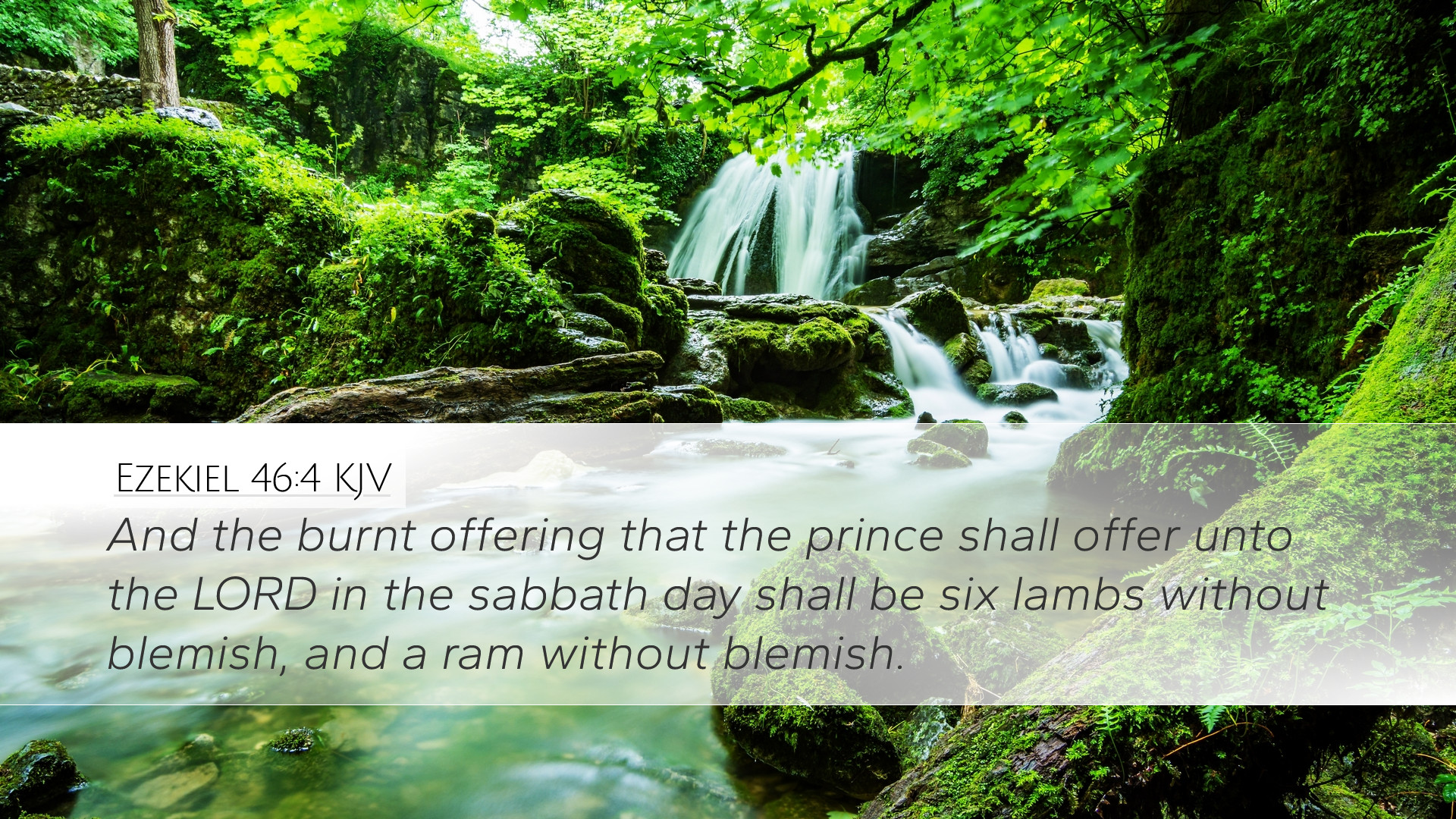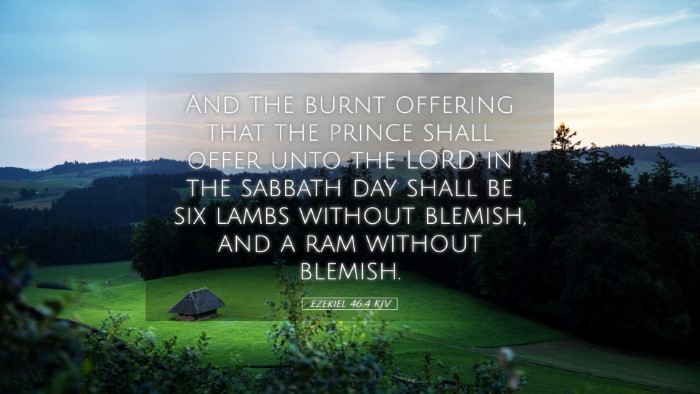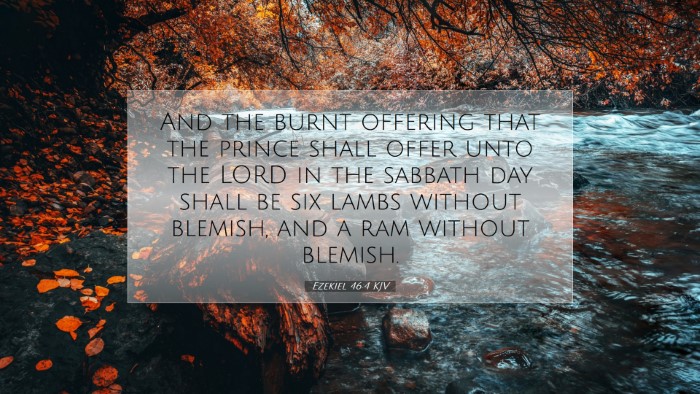Ezekiel 46:4 Commentary
Ezekiel 46:4 states: "And the burnt offering that the prince shall offer unto the Lord in the sabbath day shall be six lambs without blemish, and a ram without blemish." This verse presents an important aspect of worship in the context of the restored temple and offers rich theological insights worth exploring.
Context of Worship
The focal point of Ezekiel's prophecy revolves around the restoration of Israel, particularly concerning their worship practices. Ezekiel, a prophet during the Babylonian exile, outlines how the people of God are to conduct themselves in the future temple. This verse discusses the specific requirements for burnt offerings on the Sabbath, emphasizing the importance of these rituals.
Significance of the Burnt Offering
Burnt offerings hold high significance in the sacrificial system as they represent total dedication and atonement. Matthew Henry delineates that the burnt offering symbolizes the worshiper's commitment to God, as the entire sacrifice is consumed by fire, indicating complete surrender. In the sabbath context, it reflects not only personal devotion but also communal worship, affirming the people's shared faith and dependence on God.
Symbolism of Sabbath Worship
The Sabbath is a day of rest and remembrance. Smuggling in the nuances of Sabbath observance, Adam Clarke highlights that this sacred day is designed to cultivate spiritual rejuvenation. The prescribed offerings on the Sabbath not only fulfill ritual obligations but also connect the worshippers to their Creator in a deeper, more restorative manner. This resonates with the overarching themes of redemption and reestablishment found throughout Ezekiel.
Detailed Offering Requirements
- Six Lambs: The specification of six lambs is particularly noteworthy. Albert Barnes interprets this as a representation of completion and perfection in the context of God's covenant with His people. The six lambs serve as a visible manifestation of their commitment to uphold the covenant through regular acts of worship.
- One Ram: The inclusion of a ram is indicative of a more significant sacrifice, signifying not just atonement but also the leadership role of the prince in worship. The prince’s offerings bear theological implications about the necessity of true and sincere leadership in faith communities.
The Role of the Prince
The reference to "the prince" introduces leadership within Israel's worship practices. According to Matthew Henry, this individual symbolizes both divine authority and human representation. It points to a revived national and religious identity where the leader actively participates in and facilitates worship, implying that true leadership is marked by servitude and sacrifice.
Application for Modern Believers
For contemporary theologians and pastors, Ezekiel 46:4 offers profound insights into worship today. It prompts reflection on the nature of our offerings to God. As the church reflects on this passage, it should consider:
- How are we dedicating our lives to God through our offerings?
- In what ways are we leading our congregations in authentic worship?
- Are our institutional practices reflective of the spiritual significance found in the worship described in Ezekiel?
Conclusion: A Call to Holiness
Ezekiel 46:4 encapsulates a call to holiness, reminding all involved in church leadership and worship that the act of dedicating offerings is not merely ritual but a substantive expression of love, commitment, and atonement. In studying the text, we are invited to learn from the historical practices to reinvigorate our contemporary worship, cultivating a faith that is active, meaningful, and aligned with God’s intentions.


